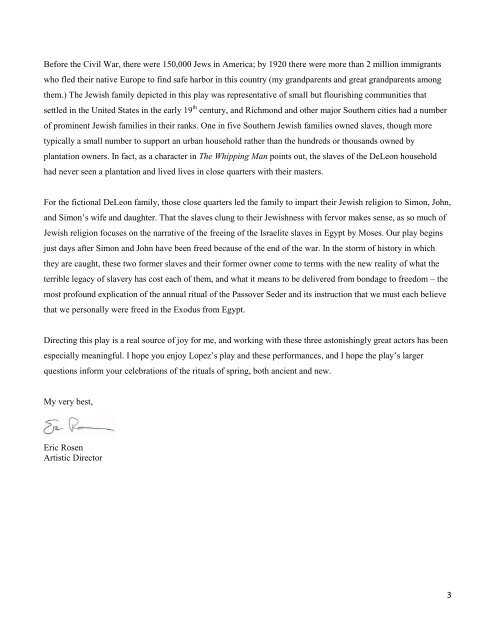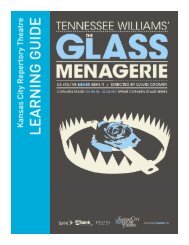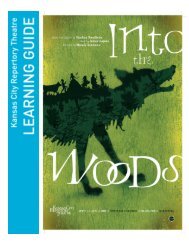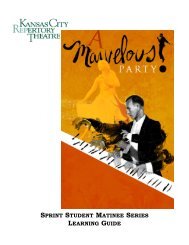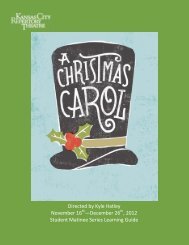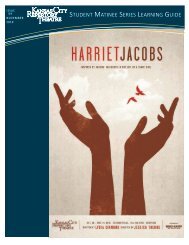Student Matinee Series Learning Guide - The Kansas City Repertory ...
Student Matinee Series Learning Guide - The Kansas City Repertory ...
Student Matinee Series Learning Guide - The Kansas City Repertory ...
You also want an ePaper? Increase the reach of your titles
YUMPU automatically turns print PDFs into web optimized ePapers that Google loves.
Before the Civil War, there were 150,000 Jews in America; by 1920 there were more than 2 million immigrants<br />
who fled their native Europe to find safe harbor in this country (my grandparents and great grandparents among<br />
them.) <strong>The</strong> Jewish family depicted in this play was representative of small but flourishing communities that<br />
settled in the United States in the early 19 th century, and Richmond and other major Southern cities had a number<br />
of prominent Jewish families in their ranks. One in five Southern Jewish families owned slaves, though more<br />
typically a small number to support an urban household rather than the hundreds or thousands owned by<br />
plantation owners. In fact, as a character in <strong>The</strong> Whipping Man points out, the slaves of the DeLeon household<br />
had never seen a plantation and lived lives in close quarters with their masters.<br />
For the fictional DeLeon family, those close quarters led the family to impart their Jewish religion to Simon, John,<br />
and Simon’s wife and daughter. That the slaves clung to their Jewishness with fervor makes sense, as so much of<br />
Jewish religion focuses on the narrative of the freeing of the Israelite slaves in Egypt by Moses. Our play begins<br />
just days after Simon and John have been freed because of the end of the war. In the storm of history in which<br />
they are caught, these two former slaves and their former owner come to terms with the new reality of what the<br />
terrible legacy of slavery has cost each of them, and what it means to be delivered from bondage to freedom – the<br />
most profound explication of the annual ritual of the Passover Seder and its instruction that we must each believe<br />
that we personally were freed in the Exodus from Egypt.<br />
Directing this play is a real source of joy for me, and working with these three astonishingly great actors has been<br />
especially meaningful. I hope you enjoy Lopez’s play and these performances, and I hope the play’s larger<br />
questions inform your celebrations of the rituals of spring, both ancient and new.<br />
My very best,<br />
Eric Rosen<br />
Artistic Director<br />
3


